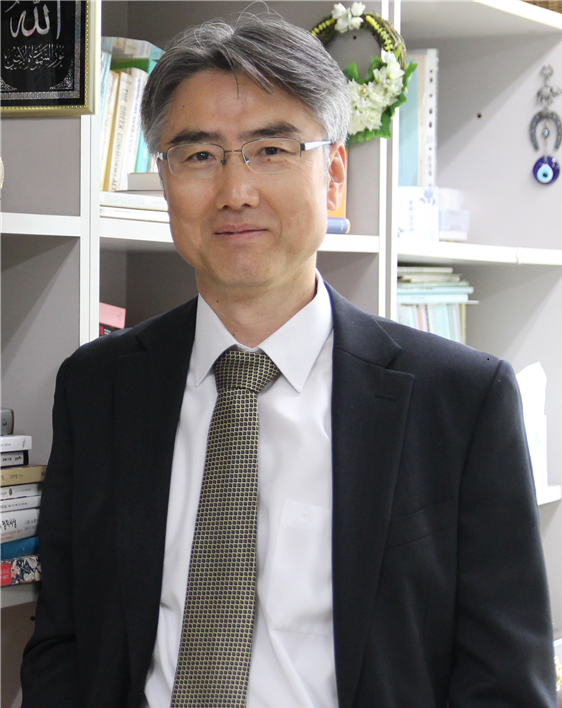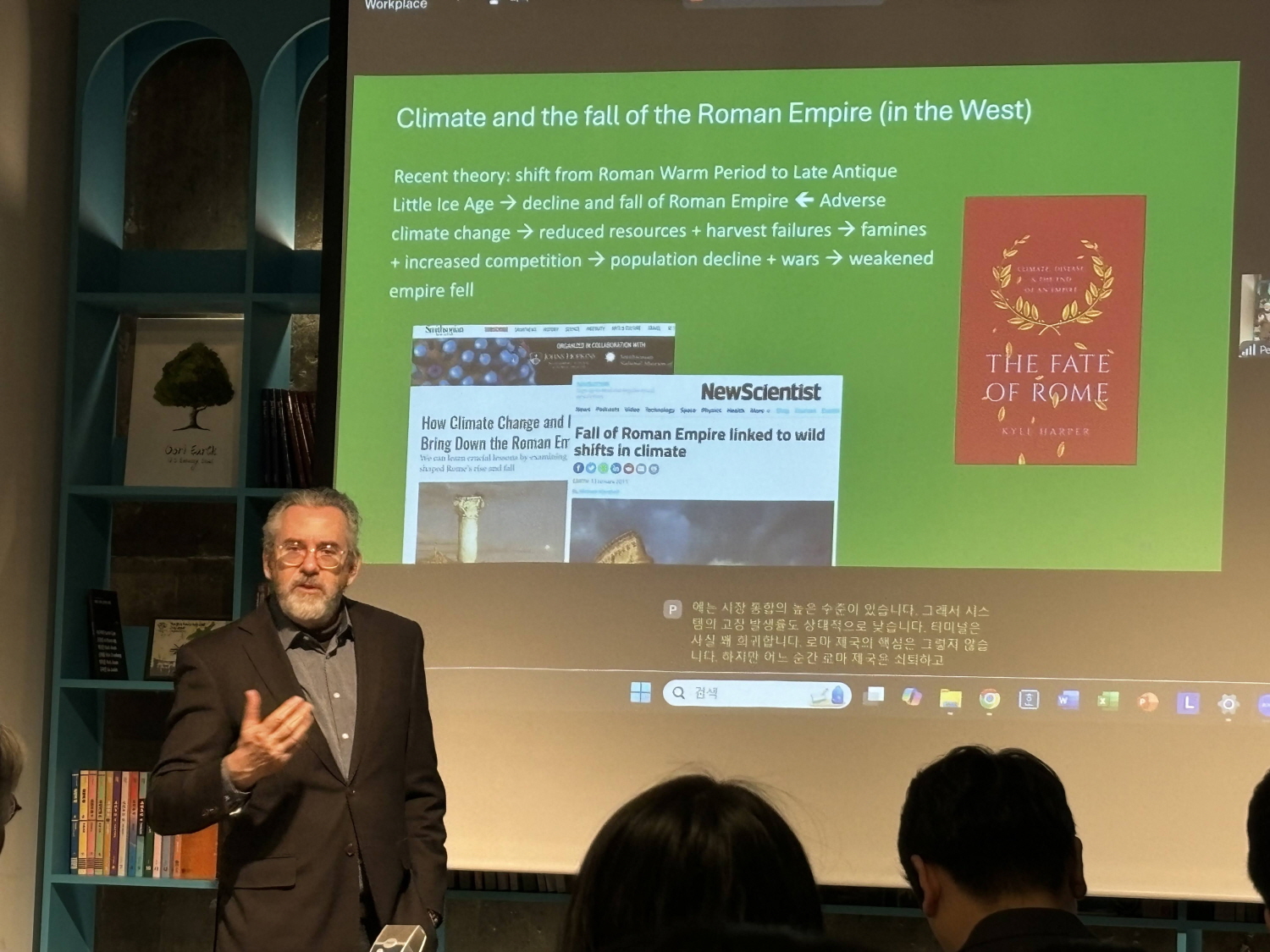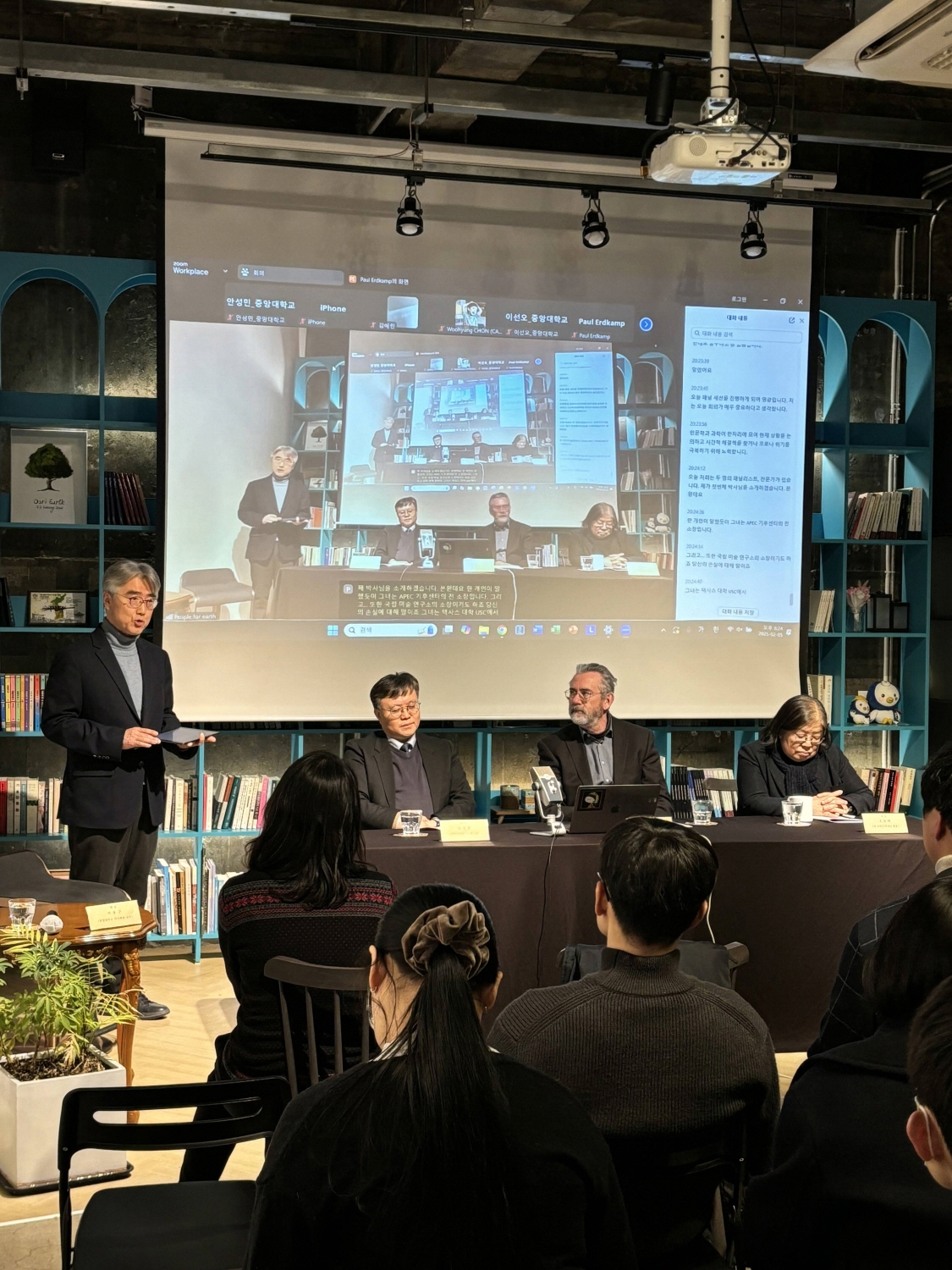학과소개Department of History, Chung-Ang University
- 교수소개
- 현직교수
- 연구실 소개
-

- 활동내역

| Scrutinising the Past, Securing the Future: ‘From Climate Impact to Resilience' | |
| 조회수 : 105 | 등록일 : 2025-03-26 |
|
SPACE March 2025 (No. 688)
View of Colloquium ‘From Climate Impact to Resilience: Early Eurasian Societies in Historical Perspective’ / Image courtesy of department of history, Chung-Ang University
from left Cha Yongku, Kim Seongjoong, Paul Erdkamp, Kwon Wontae / Image courtesy of department of history, Chung-Ang University
The 9th Climate Change Colloquium titled ‘From Climate Impact to Resilience: Early Eurasian Societies in Historical Perspective’ was held via both offline and online (zoom) on Feb. 5. This event, which was co-organised by People for Earth, Chung-Ang University’s Global Medieval Research Cluster (GMRC), and Stanford Center Korea, invited Paul Erdkamp (professor of ancient history, Vrije Universiteit Brussel) to present. Erdkamp, led by Yim Heejung (research director, Stanford Center at the Incheon Global Campus) as the colloquium’s moderator, presented a lecture that integrated climatological and paleoclimatological elements with reflection on social factors. In contrast to past opinion that longterm climate change, such as the Little Ice Age, was the main cause behind the collapse of civilisations, Erdkamp proposed a more complex form of mutual interaction that could not be reduced into a simple causal relationship. Using examples from neolithic Switzerland, late Roman Empire, China, and Angkor Wat, Erdkamp argued that society is not only one-sidedly affected by climate change but also generates variable results depending on how it copes with its environment. With technological advancements, new interpretations of the past have surfaced in recent paleoclimatological studies. While it was believed that some lakeshore settlements in neolithic Switzerland were repeatedly wiped out by climate change, the new research suggests that the residents of these settlements merely moved out when the climate worsened and returned to rebuild when conditions improved. In other words, these people successfully overcame climate change by adopting relocation as their coping strategy. Moreover, Erdkamp pointed out that while the collapse of the Ming Dynasty did coincide with the Little Ice Age and the megadrought, the fact that the Ming Dynasty survived through the fifteenth and sixteenth centuries when there were more severe symptoms of climate change reveal that climate change and civilisation collapse do not have a one-to-one causal relationship. Instead, Erdkamp posited that the dynasty’s collapse might have been due to its inability to secure sufficient control over material resources, as it transitioned from a combined economy to a commercial economy. Erdkamp also offered his analysis that the Angkor civilisation’s increased susceptibility to climate change and its eventual downfall was initiated by its failure to establish an efficient coping strategy (securement of an effective water management system) due to social change. In that context, Erdkamp argued that the primary cause behind the collapse of societies and systems was not climate change but rather a mixed combination of sociopolitical vulnerabilities such as political instabilities which, historically speaking, have often accelerated climate crises. After the lecture, a panel discussion between Cha Yongku (professor of department of history, Chung-Ang University), Kim Seongjoong (vice president, Korea Polar Research Institute), and Kwon Wontae (former executive director, APEC Climate Center) was held to review the connections between climate change and the movement of the Huns in relation to the collapse of the Roman Empire. By referring to examples of Korea’s past coping systems, which were developed to deal with disasters such as floods, various themes were discussed to locate possible coping mechanisms for contemporary climate change. During the panel discussion, Cha Yongku pointed out that because eco-anxiety and climate anxiety can – aside from raising awareness towards climate crisis – bring about a sense of helplessness and depression, a better strategy regarding climate anxiety needs to be found. While answering questions from the audience at the end of the colloquium, Erdkamp stressed that ‘while today’s problems cannot be solved by studying the past, it would be difficult to prepare for the future if we do not learn from the past.’
|
|






 https://vmspace.com/eng/news/news_view.html?base_seq=MzM1NQ==
https://vmspace.com/eng/news/news_view.html?base_seq=MzM1NQ==
